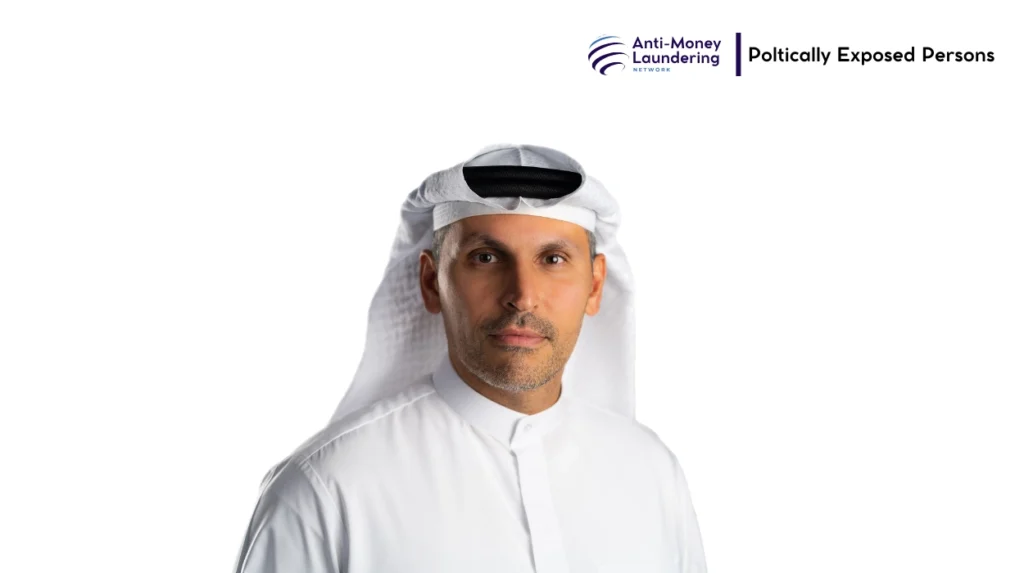Khaldoon Khalifa Al Mubarak is a distinguished Emirati government official and business leader who has played a pivotal role in shaping the economic and strategic direction of the United Arab Emirates. Holding key positions within Abu Dhabi’s government and managing one of the world’s largest sovereign wealth funds, his influence spans multiple sectors and international borders. As the CEO of Mubadala Investment Company, he steers the emirate’s ambitious diversification efforts while also serving in senior government roles that place him at the core of policymaking. His global profile is further enhanced by his leadership in international sports and diplomacy, reflecting his multifaceted contributions to both the UAE and the wider world.
Early Life and Personal Background
Born on December 1, 1975, in Abu Dhabi, Khaldoon comes from a family with a rich heritage of public service and diplomacy. His father, Khalifa Ahmad Mubarak, served as the UAE’s ambassador to France before his tragic assassination in 1984—a defining event that deeply influenced Khaldoon’s trajectory. Following this loss, he was adopted by Sheikh Zayed bin Sultan Al Nahyan, the founding father of the UAE, which further embedded him within the ruling elite.
Educated first at the American Community School in Abu Dhabi, Khaldoon pursued higher education abroad, earning a degree in Economics and Finance from Tufts University in 1997. The values of service and leadership were hallmarks of his upbringing, with family members holding significant roles in government and environmental sectors.
Family and Personal Life
Khaldoon maintains a relatively private personal life. He is married to Nadia Sehweil, whom he met during their school years, and together they have children, though specific details about his family are seldom publicized, consistent with the discretion typical among Emirati elites.
His family is characterized by close ties among Abu Dhabi’s ruling class, providing a network of influence that supports their collective role in managing the emirate’s affairs. The family’s heritage reflects a blend of diplomatic, judicial, and religious leadership across several generations, contributing to Khaldoon’s authoritative standing.
Career and Notable Achievements
Khaldoon’s career exemplifies leadership at the intersection of governance and business. Beginning with roles in the energy sector—including serving as Sales Director at the Abu Dhabi National Oil Company and executive positions at Dolphin Energy—he quickly ascended through government-linked enterprises.
In 2002, he was appointed CEO and Managing Director of Mubadala Investment Company, a sovereign wealth fund created to diversify Abu Dhabi’s economy beyond oil. Under his stewardship, Mubadala has grown into a global investment giant, managing assets exceeding $330 billion across technology, aerospace, healthcare, and renewable energy sectors worldwide. Mubadala exemplifies Abu Dhabi’s ambitious vision of economic transformation under Khaldoon’s guidance.
Beyond Mubadala, he chairs numerous major corporations, including Abu Dhabi Commercial Bank and Emirates Global Aluminium, underscoring his expansive economic influence. His governmental roles include chairman of the Executive Affairs Authority and membership in the Abu Dhabi Executive Council since 2004, shaping the strategic policies that drive the emirate’s sustainable development.
Khaldoon’s influence extends to the sports world as chairman of internationally renowned clubs like Manchester City FC, which has enjoyed unprecedented growth and success under his leadership. Additionally, he has been instrumental in bringing prominent global events, such as the Formula One Grand Prix, to Abu Dhabi, boosting the emirate’s global profile.
In education and technology, Khaldoon champions innovation, serving as chairman of the Mohamed bin Zayed University of Artificial Intelligence and as a founding member of the Artificial Intelligence and Advanced Technology Council, vital components of the UAE’s long-term development strategy.
Lifestyle and Wealth
While precise figures regarding Khaldoon’s net worth are not publicly disclosed, his leadership over Mubadala’s vast portfolio and multiple high-ranking posts suggest significant personal wealth and assets. His lifestyle reflects his status, with access to luxury residences and privileges associated with his position within the UAE’s elite framework.
The family’s wealth and assets are managed discreetly, often intertwined in the broader network of state-linked companies and investment vehicles. His lifestyle, though private, is emblematic of the expansive resources commanded by senior figures in the UAE’s ruling establishment.
Influence and Global Recognition
The extent of Khaldoon Al Mubarak’s power and influence is undeniable, spanning economic governance, strategic policymaking, and international diplomacy. As a trusted adviser within the Abu Dhabi Executive Council and a key figure in global investment circles, Khaldoon plays a pivotal role in shaping not only the UAE’s economic future but also its international relations.
He has received numerous accolades recognizing his contributions, including awards from Italy and South Korea for his diplomatic and economic leadership. His role in global sports and education further cements his position as a globally respected leader.
Financial Transparency and Global Accountability
As CEO of Mubadala and a high-ranking UAE official, Khaldoon occupies a position that places him among the most politically exposed persons. While Mubadala’s activities have propelled Abu Dhabi onto the world stage economically, the sovereign wealth fund operates with limited public transparency, reflecting broader governance practices in the UAE.
The political system and financial framework often shield senior figures from full scrutiny, creating an environment where accountability mechanisms are weaker compared to international standards. Although no formal investigations or legal proceedings target Khaldoon, the opacity inherent in state and investment institutions poses risks related to financial transparency.
Continued international oversight and adherence to anti-corruption and anti-money laundering standards remain critical in ensuring that Khaldoon’s influence aligns with principles of global financial integrity.
Khaldoon Khalifa Al Mubarak is a defining figure of modern Abu Dhabi, weaving together roles as an economic architect, policymaker, and international envoy. His leadership of Mubadala and his governmental positions have left a lasting imprint on the UAE’s development and its stature on the global stage.
Balancing visionary growth with the complexities of elite governance, Khaldoon embodies both the promise and challenges faced by rapidly advancing societies that blend traditional power structures with global economic ambition. His leadership continues to shape the trajectory of the UAE, making him a central figure in the region’s ongoing transformation.

